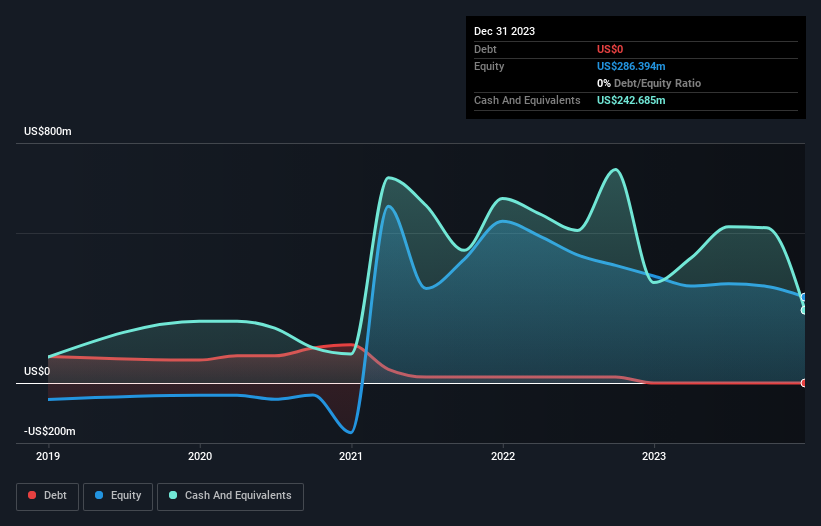We Think Clover Health Investments (NASDAQ:CLOV) Needs To Drive Business Growth Carefully
Just because a business does not make any money, does not mean that the stock will go down. For example, although software-as-a-service business Salesforce.com lost money for years while it grew recurring revenue, if you held shares since 2005, you'd have done very well indeed. But the harsh reality is that very many loss making companies burn through all their cash and go bankrupt.
So, the natural question for Clover Health Investments (NASDAQ:CLOV) shareholders is whether they should be concerned by its rate of cash burn. For the purpose of this article, we'll define cash burn as the amount of cash the company is spending each year to fund its growth (also called its negative free cash flow). First, we'll determine its cash runway by comparing its cash burn with its cash reserves.
Check out our latest analysis for Clover Health Investments
Does Clover Health Investments Have A Long Cash Runway?
A cash runway is defined as the length of time it would take a company to run out of money if it kept spending at its current rate of cash burn. As at December 2023, Clover Health Investments had cash of US$243m and no debt. Importantly, its cash burn was US$116m over the trailing twelve months. That means it had a cash runway of about 2.1 years as of December 2023. That's decent, giving the company a couple years to develop its business. You can see how its cash balance has changed over time in the image below.
How Well Is Clover Health Investments Growing?
Clover Health Investments managed to reduce its cash burn by 60% over the last twelve months, which suggests it's on the right flight path. Unfortunately, however, operating revenue dropped 43% during the same time frame. Considering the factors above, the company doesn’t fare badly when it comes to assessing how it is changing over time. While the past is always worth studying, it is the future that matters most of all. So you might want to take a peek at how much the company is expected to grow in the next few years.
How Easily Can Clover Health Investments Raise Cash?
Clover Health Investments seems to be in a fairly good position, in terms of cash burn, but we still think it's worthwhile considering how easily it could raise more money if it wanted to. Companies can raise capital through either debt or equity. One of the main advantages held by publicly listed companies is that they can sell shares to investors to raise cash and fund growth. We can compare a company's cash burn to its market capitalisation to get a sense for how many new shares a company would have to issue to fund one year's operations.
Clover Health Investments' cash burn of US$116m is about 35% of its US$332m market capitalisation. That's not insignificant, and if the company had to sell enough shares to fund another year's growth at the current share price, you'd likely witness fairly costly dilution.
So, Should We Worry About Clover Health Investments' Cash Burn?
Even though its falling revenue makes us a little nervous, we are compelled to mention that we thought Clover Health Investments' cash burn reduction was relatively promising. Even though we don't think it has a problem with its cash burn, the analysis we've done in this article does suggest that shareholders should give some careful thought to the potential cost of raising more money in the future. Readers need to have a sound understanding of business risks before investing in a stock, and we've spotted 2 warning signs for Clover Health Investments that potential shareholders should take into account before putting money into a stock.
Of course Clover Health Investments may not be the best stock to buy. So you may wish to see this free collection of companies boasting high return on equity, or this list of stocks that insiders are buying.
Have feedback on this article? Concerned about the content? Get in touch with us directly. Alternatively, email editorial-team (at) simplywallst.com.
This article by Simply Wall St is general in nature. We provide commentary based on historical data and analyst forecasts only using an unbiased methodology and our articles are not intended to be financial advice. It does not constitute a recommendation to buy or sell any stock, and does not take account of your objectives, or your financial situation. We aim to bring you long-term focused analysis driven by fundamental data. Note that our analysis may not factor in the latest price-sensitive company announcements or qualitative material. Simply Wall St has no position in any stocks mentioned.

 Yahoo Finance
Yahoo Finance 
